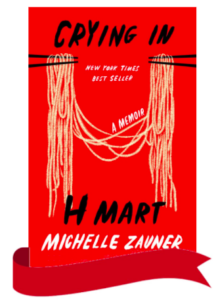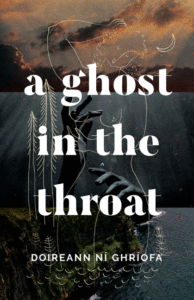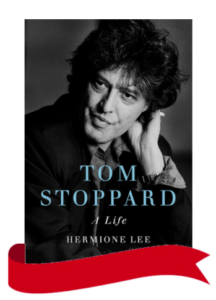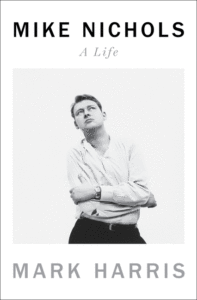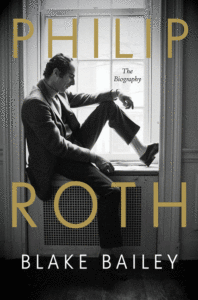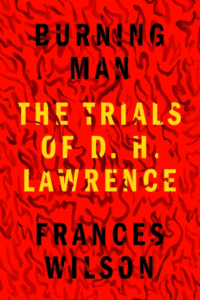The Best Reviewed Memoirs and Biographies of 2021
Featuring Tom Stoppard, Michelle Zauner, Mike Nichols, D. H. Lawrence, Chimamanda Ngozi Adichie, and more
Well, friends, another grim and grueling plague year is drawing to a close, and that can mean only one thing: it’s time to put on our Book Marks stats hats and tabulate the best reviewed books of the past twelve months.
Yes, using reviews drawn from more than 150 publications, over the next two weeks we’ll be revealing the most critically-acclaimed books of 2021, in the categories of (deep breath): Memoir and Biography; Sci-Fi, Fantasy, and Horror; Short Story Collections; Essay Collections; Poetry; Mystery and Crime; Graphic Literature; Literature in Translation; General Fiction; and General Nonfiction.
First up: Memoir and Biography.
Brought to you by Book Marks, Lit Hub’s “Rotten Tomatoes for books.”
*
1. Crying in H Mart by Michelle Zauner
(Knopf)
24 Rave • 6 Positive
“… powerfully maps a complicated mother-daughter relationship cut much too short … Zauner’s food descriptions transport us to the table alongside her … a rare acknowledgement of the ravages of cancer in a culture obsessed with seeing it as an enemy that can be battled with hope and strength …Zauner carries the same clear-eyed frankness to writing about her mother’s death five months after her diagnosis … It is rare to read about a slow death in such detail, an odd gift in that it forces us to sit with mortality rather than turn away from it.”
–Kristen Martin (NPR)
2. The Copenhagen Trilogy by Tove Ditlevsen, trans. by Tiina Nullally and Michael Favala Goldman
(FSG)
23 Rave • 4 Positive
Read an excerpt from The Copenhagen Trilogy here
“… beautiful and fearless … Ditlevsen’s memoirs…form a particular kind of masterpiece, one that helps fill a particular kind of void. The trilogy arrives like something found deep in an ancestor’s bureau drawer, a secret stashed away amid the socks and sachets and photos of dead lovers. The surprise isn’t just its ink-damp immediacy and vitality—the chapters have the quality of just-written diary entries, fluidly translated by Tiina Nunnally and Michael Favala Goldman—but that it exists at all. It’s a bit like discovering that Lila and Lenú, the fictional heroines of Elena Ferrante’s Neapolitan quartet, were real … A half-century later, all of it—her extraordinary clarity and imperfect femininity, her unstinting account of the struggle to reconcile art and life—still lands. The construct of memoir (and its stylish young cousin, autofiction) involves the organizing filter of retrospection, lending the impression that life is a continuous narrative reel of action and consequence, of meanings to be universalized … Ditlevsen’s voice, diffident and funny, dead-on about her own mistakes, is a welcome addition to that canon of women who showed us their secret faces so that we might wear our own.”
–Megan O’Grady (The New York Times Book Review)
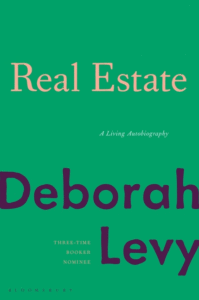
3. Real Estate by Deborah Levy
(Bloomsbury)
18 Rave • 9 Positive
Read an excerpt from Real Estate here
“[A] wonderful new book … Levy, whose prose is at once declarative and concrete and touched with an almost oracular pithiness, has a gift for imbuing ordinary observations with the magic of metaphor … The new volume, which follows the death of one version of the self, describes the uncertain birth of another … She herself is not always a purely likable, or reliable, narrator of her own experience, and her book is the richer for it.”
–Alexandra Schwartz (The New Yorker)
4. A Ghost in the Throat by Doireann Ní Ghríofa
(Biblioasis)
17 Rave • 4 Positive
Read an excerpt from A Ghost in the Throat here
“… ardent, shape-shifting … The book is all undergrowth, exuberant, tangled passage. It recalls Nathalie Léger’s brilliant and original Suite for Barbara Loden: a biography of the actress and director that becomes a tally of the obstacles in writing such a book, and an admission of the near-impossibility of biography itself … The story that uncoils is stranger, more difficult to tell, than those valiant accounts of rescuing a ‘forgotten’ woman writer from history’s erasures or of the challenges faced by the woman artist … What is this ecstasy of self-abnegation, what are its costs? She documents this tendency without shame or fear but with curiosity, even amusement. She will retrain her hungers. ‘I could donate my days to finding hers,’ she tells herself, embarking on Ni Chonaill’s story. ‘I could do that, and I will.’ Or so she says. The real woman Ni Ghriofa summons forth is herself.”
–Parul Sehgal (The New York Times)
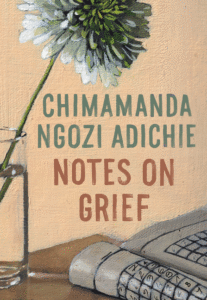
5. Notes on Grief by Chimamanda Ngozi Adichie
(Knopf)
12 Rave • 7 Positive
“… achingly of its time … I really appreciated Adichie’s discomfort with the language of grief … Books often come to you just when you need them, and it is unimaginable to think just how many people have, like the author, lost someone in this singularly strange period of our history. Adichie’s father didn’t die from COVID-19, but that doesn’t make the aftermath of that loss any less relevant … A book on grief is not the kind of book you want to have to give to anyone. But here we are.”
–Allison Arieff (The San Francisco Chronicle)
*
1. Tom Stoppard: A Life by Hermione Lee
(Knopf)
13 Rave • 18 Positive • 3 Mixed
Read an excerpt from Tom Stoppard: A Life here
“Lee…builds an ever richer, circular understanding of his abiding themes and concerns, of his personal and artistic life, and of his many other passionate engagements … Lee’s biography is unusual in that it was commissioned, and published while its subject is still alive. Lee is a highly acclaimed biographer whose rigor and integrity make her decision to write under such conditions surprising … Lee is frank and thoughtful about the challenges of writing about a living subject. She is aware, as the reader will be, that her interview subjects do not want to speak ill of a friend and colleague who is still among them. In addition to the almost unrelievedly positive portrayal of Stoppard, the seven-hundred-fifty-plus pages of this volume might have been somewhat condensed, were its subject no longer living, thereby rendering the biography easier to wield and to read. In spite of these quibbles, this is an extraordinary record of a vital and evolving artistic life, replete with textured illuminations of the plays and their performances, and shaped by the arc of Stoppard’s exhilarating engagement with the world around him, and of his eventual awakening to his own past.”
–Claire Messud (Harper’s)
2. Mike Nichols: A Life by Mark Harris
(Penguin)
18 Rave • 8 Positive • 2 Mixed
“Mark Harris’s portrait of director Mike Nichols is a pleasure to read and a model biography: appreciative yet critical, unfailingly intelligent and elegantly written. Granted, Harris has a hyper-articulate, self-analytical subject who left a trail of press coverage behind him, but Nichols used his dazzling conversational gifts to obfuscate and beguile as much as to confide … Harris, a savvy journalist and the author of two excellent cultural histories, makes judicious use of abundant sources in Mike Nichols: A Life to craft a shrewd, in-depth reckoning of the elusive man behind the polished facade … Harris gently covers those declining years with respect for the achievements that preceded them. His marvelous book makes palpable in artful detail the extraordinary scope and brilliance of those achievements.”
–Wendy Smith (The Washington Post)
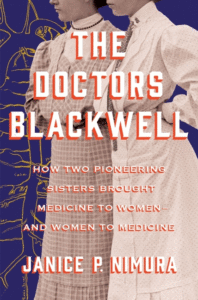
3. The Doctors Blackwell: How Two Pioneering Sisters Brought Medicine to Women and Women to Medicine by Janice P. Nimura
(W. W. Norton)
12 Rave • 11 Positive • 1 Mixed
Read an excerpt from The Doctors Blackwell here
“Janice P. Nimura, in her enthralling new book, The Doctors Blackwell, tells the story of two sisters who became feminist figures almost in spite of themselves … The broad outlines of their lives could have made for a salutary tale about the formidable achievements of pioneering women; instead, Nimura—a gifted storyteller […] recounted another narrative of women’s education and emancipation—offers something stranger and more absorbing … A culture that valorizes heroes insists on consistency, and the Blackwell sisters liked to see themselves as unwavering stewards of lofty ideals. But Nimura, by digging into their deeds and their lives, finds those discrepancies and idiosyncrasies that yield a memorable portrait. The Doctors Blackwell also opens up a sense of possibility—you don’t always have to mean well on all fronts in order to do a lot of good.”
–Jennifer Szalai (The New York Times)
4. Philip Roth: The Biography by Blake Bailey
(W. W. Norton)
13 Rave • 13 Positive • 6 Mixed • 4 Pan
“Bailey’s comprehensive life of Philip Roth—to tell it outright—is a narrative masterwork both of wholeness and particularity, of crises wedded to character, of character erupting into insight, insight into desire, and desire into destiny. Roth was never to be a mute inglorious Milton. To imagine him without fame is to strip him bare … The biographer’s unintrusive everyday prose is unseen and unheard; yet under Bailey’s strong light what remains on the page is one writer’s life as it was lived, and—almost—as it was felt.”
–Cynthia Ozick (The New York Times Book Review)
5. Burning Man: The Trials of D. H. Lawrence by Frances Wilson
(Farrar, Straus and Giroux)
11 Rave • 8 Positive • 5 Mixed
“… the feeling you get reading Frances Wilson’s Burning Man … The flare of a match, a man on fire, raging, crackling, spitting, consuming everything and everyone around him. Wilson too is on form and on fire … I’m not totally convinced the Dante business works. Wilson’s voice is so appealing—confiding, intelligent, easy, amused—I would happily have read a straightforward blaze through the life, cradle to grave, basket to casket … This is a red-hot, propulsive book. The impression it leaves is of Lawrence not so much as a phoenix (his chosen personal emblem) rising from the flames, but of a moth coming too close to a candle and, singed and frantic, flying into and into and into the wick.”
–Laura Freeman (The Times)
*
Our System:
RAVE = 5 points • POSITIVE = 3 points • MIXED = 1 point • PAN = -5 points



